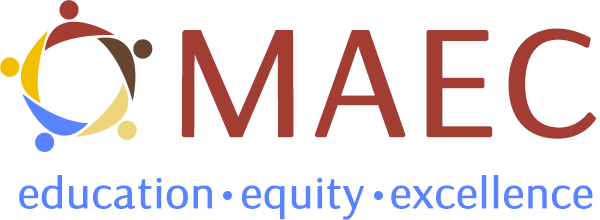Practitioner’s Perspective – Families’ Access to Data (Mariela Puentes)

Senior Education Equity Specialist Mariela Puentes breaks down why families need access to their student’s data, grounded in her personal experiences and work as a family engagement specialist.
March’s webinar in the Reflect, Reimagine, and Reform series focuses on family access to educational data. Can you tell us why parent and family access to their children’s education data matters?
In family engagement, our job is to ensure that all families, especially families who are culturally, linguistically, and socioeconomically diverse, are engaged in their children’s education. A lot of the time, families are missing the critical pieces to be able to engage effectively, like having access to their children’s data. Historically, non-dominant families have been left out of decision-making around their children’s education. Many families will trust whatever educators are doing and will leave educational decisions up to the educators. Ensuring that families have access to data put families in the driver’s seat.
During the pandemic, we have seen inequities grow during distance learning, when many kids experienced barriers to an effective education because of their lack of access to childcare, internet, or to accommodations that they normally would have had in person. Family access to data is even more important now, because supporting students, especially students of color, students from low-income backgrounds, English learners, and students with disabilities, requires that families and educators work together to ensure that children have access to the resources and opportunities they need to do well.
What does it mean to put families in the driver’s seat?
MAEC’s family engagement efforts draw from Dr. Karen Mapp’s work on the dual capacity framework, which describes the importance of building the capacity of educators and families, of having a two-way collaborative approach to students’ learning and well-being. The thing is, we know that there’s an inherent power imbalance in that relationship. Educators know the rules, the systems, the structures, and the kind of information that is available – which is great, but many families don’t have access to that knowledge.
With that in mind, we work to center the voices and needs of non-dominant families in conversations about family engagement. What knowledge specifically do families want and need access to? Our March webinar, “Making Sense of Data with Families,” grew from a survey in early 2022 to understand families’ needs around accessing and understanding education data. This project is evolving into a data guide series that will help families identify the kind of data that schools and districts collect, make sense of data, and use data to advocate for their kids. This series equips families with the tools that they need to make important decisions about their children’s education.
How does this topic relate to your work and your experiences?
Whenever I think about education and education equity, I think about my own experiences growing up. My mom trusted that educators were doing what was best for me and that I would figure my own path out. Sometimes I feel like I lucked out, because I just knew that I had to do certain things and I did them, but for 90% of children, that doesn’t work. Equitable collaborations happens when families, educators, and students partner together and figure out a way forward to ensure that children and families have access and opportunities to thrive. My identity as a first-generation college graduate is the reason why I chose to go into education in the first place. All of these systems are here, but we – families like mine – just don’t know about them, and we don’t know about our agency within all of these systems. I work to help families access education systems, to make sure that families who have been historically marginalized in education have the tools so their voices are heard.
The Center for Education Equity (CEE) at MAEC is inviting members of our advisory board, partners, staff, and other colleagues to share their views on current equity issues. Their opinions do not necessarily reflect CEE’s views or those of the Department of Education and we do not necessarily endorse any products or resources they promote.

